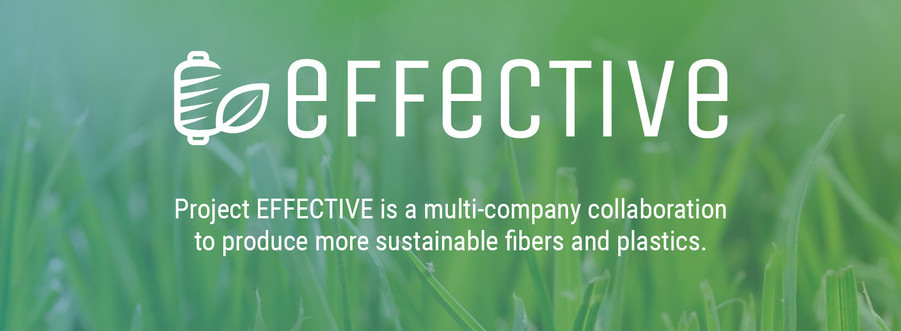Public announcement of project EFFECTIVE
12 firms, led by Aquafil, secure 7.1 million euros from the European Union H2020 program
Ljubljana, Slovenia. May 9th, 2018 – AquafilSLO announced today that it will act as the coordinator of a consortium which has been awarded a grant from the Bio-Based Industries Joint Undertaking (BBI JU), a public/private partnership between the European Union and the Bio-based Industries Consortium (BIC). The grant, for 7.1 million euros, is for the “EFFECTIVE” project, which aims to demonstrate first of its kind and economically viable ways to produce more sustainable fibres and plastic films. The focus is on making biobased polyamides and polyesters from renewable feedstocks rather than oil and gas and aims to accelerate progress toward a more circular economy and responsible use of materials. The project intends to enable the use of biobased ingredients to go into widely-used consumer products across multiple markets, such as construction, automotive, packaging, garments, carpets and textile, and demonstrate improved ways of recycling or biodegrading materials.
EFFECTIVE team extends from product ingredients through finished materials, recycling and more.
The participants in the EFFECTIVE project include 12 companies in 7 countries, specializing in:
- renewable feedstocks;
- conversion technologies, including fermentation-based techniques of making widely-used chemicals
- from renewable feedstocks;
- makers of intermediate and finished products;
- major consumer brands;
- recycling and biodegradability experts;
- and sustainability advisors.
The EFFECTIVE project will be coordinated by AquafilSLO (Slovenia) and includes Aquafil S.p.A (Italy), Novamont (Italy), Südzucker (Germany), Carvico (Italy), Vaude (Germany), Balsan (France), H&M Group (Sweden), Bio-Mi (Croatia), CIRCE (Spain), Life Cycle Engineering (Italy) and Circular Change (Slovenia). The team believes that this multi-stakeholder approach can greatly accelerate widespread adoption and deployment of new technologies, along with both economic and sustainability benefits.
Moreover, the project will also benefit from the significant involvement of Genomatica, a U.S.-based leader in biotechnology, which will contribute to the project by developing and demonstrating innovative biobased chemical technology.
The project, which will officially start in June 2018, is part of the European Union H2020 programme to stimulate investments towards the development of a sustainable and circular biobased economy.
More details, updates on the project activities and progress, contacts and other information, will be available on the project website, which will be on line soon.
For more information: effective@aquafil.com
